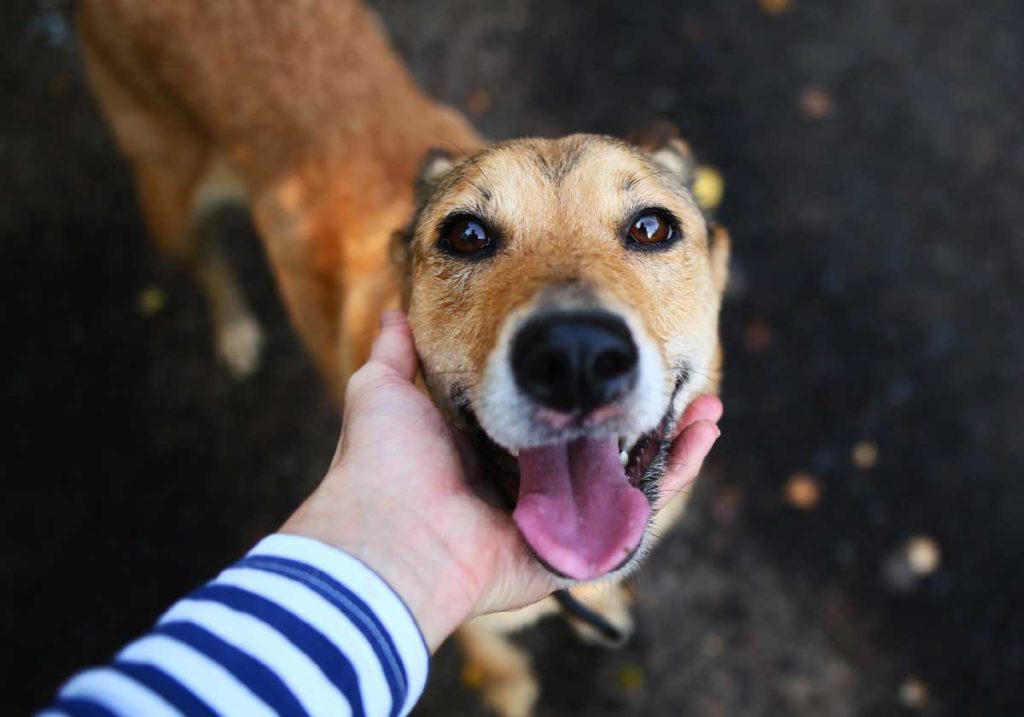Welcoming a rescue dog into your home as a new member of your family can be an incredibly rewarding experience. If it’s a good fit, you have the opportunity to provide an animal in need with a new lease on life and a safe, loving environment. However, bringing home a rescue pet can be challenging, particularly for a dog who has come from an abusive, neglectful, or otherwise traumatizing background. The process of getting these rescue dogs settled into their new forever home requires a lot of time and patience.
Table of contents
What to expect when bringing home your rescue dog
You’ve had a chance to think through this process of adopting a dog, bringing them home, and helping them acclimate to their new life. Your new pup, however, has not. They are blindsided by the idea that an unknown family, strange household, and different expectations are about to become their new reality. Everything is new and overwhelming for your new dog, so patience on your part is crucial. It will take some time to get on the same page.
Moving is stressful! As a dog parent, you want to make this transition for your canine companion as smooth as possible. And when they’re happy, you’re happy, too. The amount of time needed to completely decompress and settle in can vary with each dog. People often say that they don’t see their dog’s true personality until several weeks or even months after adoption. Just let them go at their own speed.
Prepare, plan, and prepare some more
Planning ahead for the arrival of your new furry friend will help set you and your new pup up for success. First and foremost, you’ll have to make a run to the local pet supply store. Make sure you have all of the supplies you expect to need—a crate with cozy bedding, healthy food and treats, plenty of toys, and a leash and collar and or harness, for starters.
Safe space
Your dog will need a space that is theirs alone, somewhere quiet and private where they can retreat if they feel overwhelmed or scared. You will want to designate a safe, cozy place for them to rest and relax. Set up comfy bedding where you think your pup may find some peace or use a crate to make it feel more like a den.
Consider a crate
You might want to consider using a crate with your new furry family member. Crates can be particularly beneficial for anxious or fearful rescue dogs, as they provide a safe space to adjust to their new surroundings. This designated space offers your rescue dog their own territory where no one will hurt or bother them. If you do decide to use a crate, make sure you and your family respect these boundaries to help your pup feel confident and secure.
Many rescue dogs also exhibit behavioral issues associated with a lack of socialization and or anxiety. In this case, a crate can be helpful in avoiding triggers and keeping your pup safe from hurting themselves or getting into trouble. And you’ll appreciate that a crate can prevent your home from being destroyed!
Consistency is key
Next, you should think through what your new dog’s schedule will look like. Dogs are creatures of habit and thrive when given a clear structure and routine. They’re most relaxed when they know what to expect of you and what you expect of them. Establish your household rules (i.e., will they be allowed on the furniture?) and come up with a plan for consistent mealtimes and potty breaks. You should keep your pup’s feeding routine and food consistent with what they were experiencing prior to coming home with you. In fact, given how sensitive dogs are to routine, changes to food or any aspect of your set schedule should be done very gradually.
They’re here. Now what?
The first few days in your home are critical for your new dog. They will undoubtedly be confused about where they are, what they can expect from you, and what you expect from them. That’s why it’s important to establish clear structure and good habits from the get-go. This will lay the groundwork for a lifetime of happiness for you and your new best friend.
Attitude is everything. Your new pup will likely be in shock or a bit uneasy at first as they get to know you and their new surroundings. Stay calm and patient, warm and welcoming, and check in with your body language. It’s your job to build your dog’s confidence by offering gentle guidance, giving them plenty of exercise, and taking advantage of valuable bonding time.
Housetraining…and retraining
It’s important to note here that just because your furry friend was previously potty trained somewhere else doesn’t mean they will be accident-free in their new home. A new environment can be disorienting and lead to lapses in even the best training. Make sure to take your pup outside frequently and use positive reinforcement—not punishment!—to encourage them to keep doing what you want.
New member of the pack
Do you already have an adult family dog in your home? When approached thoughtfully, this can be a great situation for your rescue pup. It’s possible that your new companion has come from a dog-filled shelter or has perhaps spent only a limited amount of time with humans or in a traditional household setting. In these cases, your resident dog may be a source of comfort to their new sibling and a built-in teacher to show them the ropes.
At first, the new siblings should be introduced very slowly in a neutral space. Once they get acquainted, your dogs can be fantastic companions, support systems, playmates, and mentors for one another.
Bottom line
It will likely take a while for your new furry friend to develop trust, feel comfortable, and learn their role in your home. A dog who’s anxious and insecure in a new environment can take months to show trust and affection. While many dogs may settle and behave as though they feel like they’re home within a few weeks, they really don’t fit into your routine until about three months have gone by. Celebrate the small victories! Any progress, no matter how small, is progress worth noting. Take the time to help your rescue pup feel comfortable and safe, and you both will have a friend for life!
How can CBD + CBDA help your new rescue dog settle in?
Stress is particularly common in rescue dogs. Dogs who have been abandoned, experienced trauma, or have spent time in and out of shelters may develop stress associated with separation and new people or environments. The constant changing of environments and the solitude of being alone can make rescue dogs very insecure, even if that’s not their true personality.
If there’s one thing doctors and veterinarians will agree on, it’s that stress in any form is not good for the short- and long-term health of you and your pup. ElleVet’s CBD + CBDA chews, soft gels, and oils can help put your rescue dog’s mind at ease and support a smooth transition and adjustment process. In addressing your dog’s short-term and or long-term stress, ElleVet’s CBD + CBDA can lead to improved overall well-being and help them overcome a significant barrier on the road to settling into their new home. And we all want a happy, relaxed, and well-adjusted pup!
As always, consult your veterinarian about any mental or physical health issues your dog may be experiencing. For any questions about ElleVet’s CBD + CBDA products or how CBD can help your canine friend live their best life, give us a call (844-673-7287) or send us an email ([email protected]). We are here to help.













